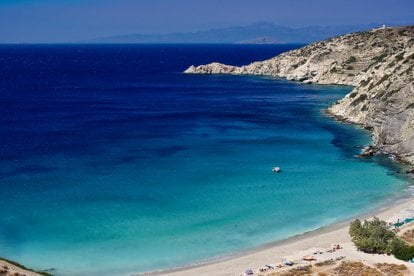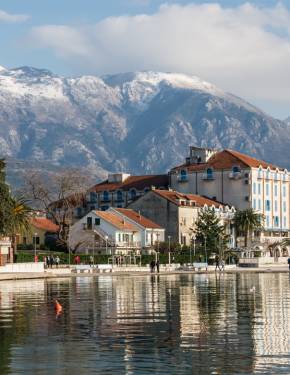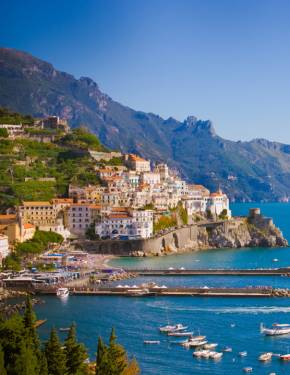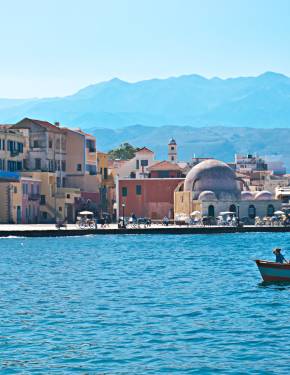
Best time to visit
61 things to do in Greece

Kourampiedes (Kourabiethes)—Greek Christmas Butter Cookies
During Christmas vacation in Greece, try these delicious traditional butter cookies which look like small snowballs

Melomakarona—Greek Christmas Honey Cookies
Christmas in Greece won't be complete without these traditional festive sweets!

Oxi Day (Ohi Day)
Visit the biggest national holiday in Greece with lots of parades and festive events

Ifestia Festival
The festival is entirely dedicated to the volcano eruption that changed the landscape of Santorini forever in the mid-second millennium BCE

Octopus Season
Santorini boasts to be a seafood destination, and offers octopus dishes with its own unique flavour

Hiking in Samaria Gorge National Park
Samaria Gorge National Park is a place with incredibly stunning nature, waterfalls, lakes, ancient settlements, and unique flora and fauna

Lefka Ori Hike (The White Mountains)
These snowy mountains are waiting for you in sunny Crete

Hiking
The rich architectural heritage and natural attractions of Athens are best explored on a leisurely hike

Drosoulites of Frangokastello Castle
Have you ever seen a mirage? This one is so real that it has confused people for hundreds of years

Apokries or Carnival
Before the long-lasting fast, Greeks feast on meat at a huge party that stretches over three weeks

The Tour of Crete
A great chance to test yourself and partake in a challenging bicycle holiday among the beauty of Crete

Wild Greens (Horta)
Dreaming of long life and perfect skin? Try these delicious wild greens from Crete

Crete Beach Season
Enjoy plenty of swimming and sunbathing spots on the fifth largest island in the Mediterranean Sea

Greek Easter Food
Lent is over and Greeks finally feast on lamb delicacies like Magirista, Arni Pashaulino, and Tsoureki

Fuchsia Bougainvillea Bloom
The bloom of these flowers are considered to be Santorini's trademark

Breathtaking Sunsets
One of the most famous features of Santorini is its sunset

Wineries: Wine Heritage, Tasting Tours, and Winemaking
Santorini boasts best wine production on Cyclades

Patras Carnival
A month-long Greek style fiesta in the city of Patras

Wild Artichokes
This Greek delicacy is cheap, healthy, and really delicious

Sardine Season
In fishermen's villages, people eat sardines every day, which is perhaps the secret to Greek longevity

Naoussa Carnival
An old Greek masquerade is recreated with precision and respect for traditions

Sea Turtles
Visit some of the wonderful Greek beaches, which are home to the adorable Caretta turtles

Epiphany & Blessing of the Waters
A symbolic and spectacular ending to the Christmas holidays

Galaxidi Flour War Carnival
Even during Clean Monday, there is little chance to avoid getting really dirty

Athens Authentic Marathon
This Greek marathon will make you travel back to glorious ancient times

Ouzo & Tsipouro Preparation
Both ouzo and tsipouro are considered as national spirits of Greece that represent its drinking culture

Valley of Butterflies in Rhodes
Thousands of butterflies flock to Rhodes every year at the end of May

Chios Mastiha (Mastic)
A Greek elixir that cures diseases and complements desserts

Neda River Hiking
Grab your hiking shoes and swimming suit to explore one of the most beautiful spots in Greece

Skiing & Snowboarding in Greece
Greece can be visited beyond its beach season. If you visit during winter, be sure to check out its skiing destinations

Thessaloniki International Film Festival
Ten days take over the city with the magical atmosphere of cinematography

Saffron Harvest
Kozani Krokos Saffron from Greece is recognised as some of the finest in the world

Birdwatching
Situated at the crossroads of three continents, Greece boasts a rich bird life

Windsurfing & Kitesurfing
What can be more alluring than white sand, blue water and great waves? Only when you are standing on a board

Spartathlon
One of the world's toughest races covers the distance from Athens to Sparta

Kalymnos Climbing Festival
Kalymnos island is a Mecca for climbers from all around the globe

Dalmatian Pelican Breeding Season
An entire colony of this endangered species breeds on Lake Kerkini in winter
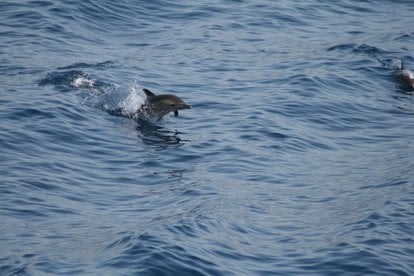
Sporades Dolphins & Seals
Discover some of the largest European sea creatures at the first Greek marine natural preserve

River Party in Nestorio, Kastoria
This music camp is the best in Greece and in the top ten of Europe

Easter in Greece
Church ceremonies and huge celebrations throughout the country

Mediterranean Cruises
Enjoy an award-winning vacation, highlighting picture-perfect coasts, ancient history, and fine cuisine

Greek Island Cruises
Discover the best isles of the Eastern Mediterranean and historic port cities of Turkey

New Year's Eve in Greece
Smash a pomegranate for good luck and welcome a plentiful New Year

Fira to Oia Walk (Caldera Trail)
Discover Santorini’s timeless charm and dramatic volcanic landscape on one of the most iconic hikes

Akrotiri Lighthouse
Discover the historic charm and breathtaking views of Akrotiri Lighthouse

Cooking Classes
Discover the flavors of Greece and bring home the taste of Santorini with every dish you create

Heart of Santorini
A stunning, heart-shaped window to the Aegean, which blends romance with breathtaking views

Castle of Oia
Discover the timeless beauty and breathtaking sunsets at the Castle of Oia, where history meets the horizon
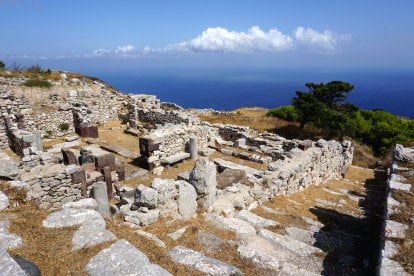
Ancient Thera (Mesa Vouno)
Step back in time and explore the ancient wonders of Thera, where history meets breathtaking views

Skaros Rock
Ancient fortresses, dramatic cliffs, and sweeping caldera views tell the timeless story of Santorini




